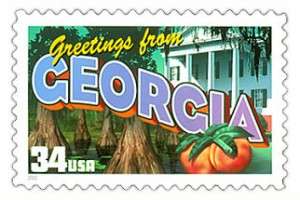Casino Talks Continue in Georgia
Discussions about the possibility of legalizing casino gambling in the state of Georgia continued on Monday as state legislators met in Savannah to hear thoughts from both sides of the conversation. The hearing was hosted by the Study Committee on the Preservation of the HOPE Scholarship Program, a joint committee comprised of members of both the Georgia House and Senate.
The HOPE Scholarship has been around since 1993 and helps Georgia residents pay tuition at in-state colleges and universities, both public and private. It is funded by the Georgia Lottery and though the HOPE Scholarship has been a wild success, it is that success that is causing problems. So many students take advantage of the award every year that funds are dwindling.
 “We’re at 71 percent right now and falling,” the Savannah Morning News reported state Rep. Ron Stephens (R – Savannah) as saying. “…We’ve already cut out books and fees and that kind of stuff. Our best and our brightest are staying home, and the revenues are flat.”
“We’re at 71 percent right now and falling,” the Savannah Morning News reported state Rep. Ron Stephens (R – Savannah) as saying. “…We’ve already cut out books and fees and that kind of stuff. Our best and our brightest are staying home, and the revenues are flat.”
Stephens introduced legislation in March, HB 677, that would legalize casino gambling in the state. It would authorize the construction of six “destination casinos” in Georgia across five licensing regions, which are already delineated in the state’s constitution. Region 1, the largest, encompassing the Atlanta metropolitan area and nearly half the state, would be eligible for two casinos, while the other four regions would be able to have one each.
Currently, the only legalized form of gambling in Georgia is the lottery. Residents of the state have to travel to neighboring states to visit a casino. The closest “real” casino to the Atlanta metro area has been Harrah’s Cherokee in North Carolina, about a three hour drive from Georgia’s capital. Cherokee Valley River Casino just opened in southern North Carolina and is a bit more than two hours from Atlanta. Other options for Georgia residents include casinos in Florida, but those are a solid day’s drive for much of the state’s population.
As Rep. Stephens said, payments for books and fees were removed from the HOPE Scholarship in 2011 because of dwindling funds. Other measures have been implemented, as well, to make it more difficult to earn the scholarship, thus reducing the number of scholarships that have to be paid out. Students must earn a 3.0 grade point average in high school to be eligible for the scholarship and must maintain that level in college to keep it. This year, though, new “academic vigor” standards were implemented, which require high school students to take multiple upper-level course to qualify for the scholarship. Those requirements will continue to escalate through 2017.
Tuition awards vary by school. Georgia Tech’s fall tuition, for example, is $4,906 for in-state residents (based on 15 credit-hours). The HOPE Scholarship will pay $3,495 of that.
Under HB 677, casino taxes would be 12 percent of gross gaming revenue. All of that money would go to the state, with most of it being used to bolster the HOPE Scholarship. The licensing fee for the “primary” casino in Region 1 would be $25 million, while the licensing fee for the other five casinos (if they were to be built, of course), would be $10 million. This is a one-time fee, not annual, and the licenses would be good for 15 years.
Governor Nathan Deal has been a staunch opponent of casinos, telling the Atlanta Journal-Constitution (AJC) in October, “I will make my position very clear to the members of the General Assembly. And I would hope they would recognize that we have so many good things going for us in the state of Georgia. This is not something I view as positive. I do not think it improves the quality of life for our citizens. And in my opinion it has very little redeeming value.”
“If they’re willing to put anywhere from 24 to 35 percent of their gross revenue into education … as the (Georgia Lottery) does, that will be a totally different proposition,” Deal added. “I don’t think we’re going to see any of them take us up on the offer.”
Ah, but wait. In Monday’s hearing, representatives from gaming companies interested in developing properties in Georgia said they might be willing to see that tax rate raised from 12 percent, as offered in the bill, to as much as 20 percent.
“We want to be good neighbors,” said PCI Gaming president and CEO Jay Dorris.
It would not be shocking if prospective gaming companies were willing to pay the tax rate Deal wants, as Georgia – and the Atlanta area, in particular – is seen as one of the richest, untapped gambling resources in the country. The gaming firms want in badly. According to the AJC, “The companies are selling themselves as legitimate and transparent businesses that welcome regulations. They also have stressed community involvement and said they are not looking for tax incentives or financial giveaways in order to do business in Georgia.”
Even though any possible legalization of casino gambling is a long ways away, gaming companies have already been making plans. This summer, MGM Resorts International presented a $1 billion casino resort development proposal for downtown Atlanta. Rep. Stephens saw it and said, “It will compare with anything in Las Vegas.”



















COMMENTS